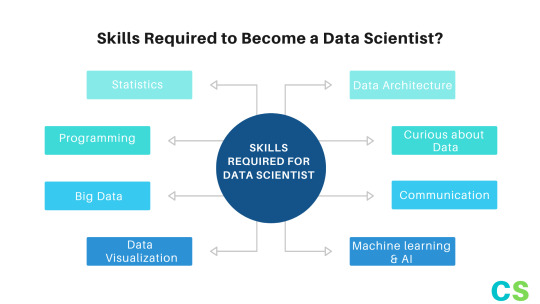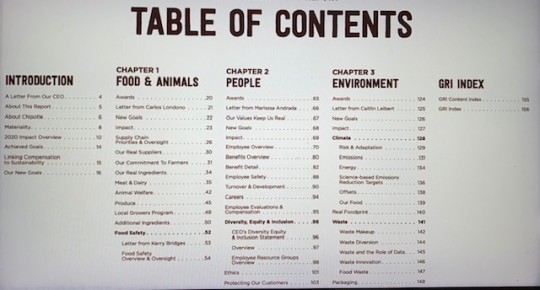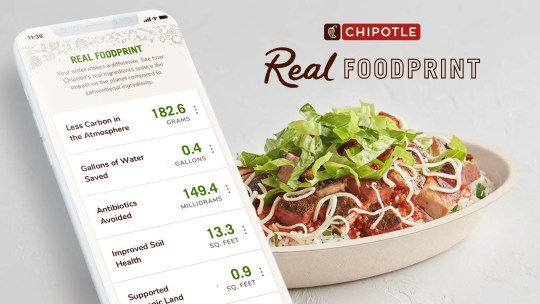#data scinece
Text
Delve into the realm of A/B testing and experimentation in data science, unraveling the methodologies that drive evidence-based decision-making. Explore the nuances of controlled experiments, statistical significance, and impactful insights for optimizing outcomes. Continue reading...
0 notes
Text
Data Scinece courses

Data Science courses provide comprehensive training in statistical analysis, machine learning, and data visualization. Students learn programming languages like Python and R, along with tools such as SQL and TensorFlow. Practical projects and real-world datasets enhance learning. Graduates emerge equipped for roles in data-driven decision-making across various industries.
0 notes
Link
(1) Online Training
(2) Job Support
(3) US IT CONSULTING
(4) Proxy Help
0 notes
Text
#learn data science#data scinece#careeer#courses#eductation#e learning#greatlearning#business strategies#digital business#upskill#certification training
3 notes
·
View notes
Text
⚡✨The power of hugs✨⚡
So, when we hold someone's hand or hug them, we feel every bit of them and our brains react. When we reach out, a chemical called oxytocin — also dubbed the “love hormone” — kicks in and makes us feel warm and fuzzy inside.

#love#feelings#truth#бг любов#warmth#calmingvibes#lovely#chronic pain#great smile#positive vibes#positive#home alone#alone#i am alone#data scinece#information#anime#affection#feel something#how i feel
2 notes
·
View notes
Text

What exactly is information technology ?
#joaquinpefagundo#florida#parkland#jackfagundo#orlando#datacenter#joaquin fagundo#dataguard#jack fagundo#joaquinfagundo#future of technology#future of information technology#information technology#data scinece
0 notes
Photo

Start Your Data Science with Python Career With Hachion Online Training by Real Time IT Industry Working Professional Trainers. We are one of the leading online training services and job assistance providers.
Fill this form for free demo: https://forms.gle/JCwgrWeDCCccHiAZ6
#data scinece#python#data science online training#python online training#datasciencetraininghyderabad#pythontraininginhyderabad#pythontrainingchennai#pythononlinetraining
0 notes
Link
Data Science can be interpreted as an advanced application of Computer Science which has been specially designed to deal with the data analytics applications. Grow your career with data science training in Pune. This training provides training in the skills required to become a certified data scientist. You'll learn the most in-demand technologies such as Data Science on R, SAS, Python, Big Data on Hadoop and implement concepts such as data exploration, regression models, hypothesis testing, Hadoop, and Spark.
1 note
·
View note
Text
What is the Future Scope of Data Science?
As Data Science is still a growing field, there’s extra to assume from it in the future. Let’s look at particular of the touching Data Science leanings that may soon become an actuality in the upcoming future. Read more this article.
https://www.apsense.com/article/what-is-the-future-scope-of-data-science.html
0 notes
Text
data science course in hyderabad
Data science is a relatively new field which is having a promising advancement today. Data science can bring about a huge technical revolution in today’s world. 360DigiTMG is the best institute for data science course Hyderabad

0 notes
Link

#data scinece course in pune#data science training with python in pune#data science training in pune#data science classes in pune#data science#dataanalytics#data science classes#data science with python training#data science training institute in pune#data science certification#best data science training in pune
0 notes
Text
Shit
Shit
Shit
Shit
s h i t
SHiT
Shit
SHIT
shit
Shit
Shit
Shit
Shit
Shit
Shit
shit
#i messed up my scinece fair project#i dont have a control so i have nothing to compare my data to#unless i change something.#ITS DUE MONDAYYYY
5 notes
·
View notes
Text
Can a Burrito Change the World?
This is the question a young boy asks rhetorically in a recent campaign from Chipotle, which aims to bring to life the company's "Food With Integrity" sustainability standards.
youtube
What the campaign involves
'Can A Burrito Change the World?' premiered earlier this year as a Super Bowl spot. It was one of a series of brand activations designed to shine a light on Chipotle's category-leading position as a company that is doing good by making responsible purchasing decisions that are having a tangible, positive impact on the world, such as reducing carbon emissions, saving water, and supporting local growers.
Chipotle's list of environmental accolades is lengthy... The largest fast-casual restaurant chain to commit to local sourcing at scale. The highest animal welfare standards in the industry. More than half of waste diverted to landfil. $5 million pledged to supporting young farmers. Converting conventional farmland to organic.
Chipotle brought its efforts in these areas to the attention of consumers through the launch of the Real Foodprint feature in the company's app, which allows you to measure the impact of your order. In a first-of-its-kind look into the brand's sourcing efforts, Real Foodprint tracks the environmental impact of its ingredients to their conventional counterparts against five key metrics: less carbon in the atmosphere, gallons of water saved, improved soil health, organic land supported and antibiotics avoided.
The company enlisted Bill Nye, the "Science Guy" to do a TikTok and YouTube video explaining how the new feature worked, with paid social and earned media support extending the reach of the campaign further. Integrations with Twitter encourage users to share the footprint they've generated, also helping raise awareness of the tool.
Why it got my attention, and lessons learned
#1. Walking the walk and talking the talk
Chipotle's Environmental, Social, Governance work has been lauded of late, but this hasn't always been the case. As recently as 2016-2017, the company took heat from critics for not publishing a sustainability report or making any moves to prove that its marketing claims were backed up with hard facts.
Speaking at Sustainable Brands Conference last week, Laurie Schalow, Chipotle's Chief Corporate Affairs Officer shared the below visual to help explain the dilemma the company faced at the time. She said: "We've always done a tonne of stuff - as you can see from the table of contents of our current sustainability report - but we haven't always known how to communicate it. When you're doing good, there is so much rich, authentic content, it's easy to get carried away, but you can't forget the data that supports it."

Lesson #1: walking the walk and talking the talk need to go hand in hand. Walk without talk might well capture the imagination of consumers, but without the goods to back it up, you lose credibility. Talk without walk on the other hand, and nobody pays attention. Science-based targets are critical, but without smart storytelling, they're just data points. And marketing alone isn't going to cut it. It needs to be underpinned by scinece-based targets.
#2. Have a purpose. Own it. Involve people in it
The first imperative of green marketing is to be "not bad." The new sustainability standard is to be "net good" and showing how the world is a better place for you existing. Chipotle delivers on the latter in spades, and an inherent implication of being "net good" is the need for a social purpose. A company's true raison d'etre.
Chipotle ties its mission to "cultivating a better world" and "bringing real food (with integrity) to real people." Their ardent belief in the notion that "how we grow our food is how we grow our future" is clearly expressed through all the brand's activations, and they involve consumers. Not only do they successfully show not tell what they're doing to deliver on this purpose e.g. Real Foodprint tracker, but they actively involve consumers in the journey, empowering them to feel better about the food they're consuming.

CEO Brian Niccol told Forbes: "The way we're going to continue to lead in this space is by working with the supply chain and the partners that grow or raise the ingredients we use.... Transparency is more important to people than ever. We need to show them evidence of the impact we - and they - are having."
Lesson #2: two lessons here.... Firstly, show how your purpose is a reality across everything you do. The granularity provided by the Real Foodprint tracker delivers on consumer desire for organizations to prove that their cause-orineted efforts produce tangible results.
Secondly, people need to be central to an organization's purpose. Chipotle does a really nice job - in a very natural way - of helping its customers be better humans by understanding the impact their food choices are having on the planet. They bring to life data in a way that is easy for consumers to understand.
#3. Purpose and profits are not mututally exclusive
The company's sales speak for themselves. Chipotle reported another pandemic-defying quarter in September, with sales up more than 17% and digital growth of nearly 134%. Laurie Schalow, Chipotle's Chief Corporate Affairs Officer, has been quoted as saying: "Digital is 100% what helped us through the pandemic and the Real Footprint feature in our app was a big part of that."
Company executives, including Schalow, acknowledge that sustainability is a necessity to sustain and grow Chipotle's business, and they're not shying away from this. "There is some self-serving here because we need farmers and we need high quality ingredients and so we have goals around local sourcing and organic food... In order to keep our vision, we need local farmers and real ingredients that are responsibly grown, and the only way to do that is to financially invest in them."
Lesson #3: sustainability makes good business sense. This Chipotle case is another example of a brand championing a people + planet = profits approach.
What can we apply to our own marketing: my thoughts in a nutshell
There's a lot I think we can take from this case study.
I saw communalities between Chipotle's vision and approach to sustainability and those of the California almond industry. In fact, I can't help but think that the line "how we grow our food is how we grow our future" is even better suited to California almonds than it is to Chipotle... it's a really simple, emotive way of articulating our industry's approach to sustainability.
Which makes me think we have a job to do to better bring to life what our purpose is; restating what we do, and putting the human needs we serve front and centre.
Another big "a-ha" for me from this case study is that people REALLY want to understand the impact their food is having on the planet, and they want information to help them make the right choices. Is there more we can do to think about how we can make people believe in their ability to bring about change by eating California almonds.
Research (including our most recent US Sustainability Seeker focus groups last week) tells us that consumers are motivated to make healthier choices that drive difference in the world aroud them. How do we position almonds to support people's journeys and make meaningful change?
And how do we help them make the right choices and break down current barriers to purchase? Our Sustainability Seekers want information and they want data that backs up the data. How do we get better at telling a positive story using the data we have available to us - as Chipotle has done with its Real Foodprint tracker and Bill Nye - in a way that consumers will understand, trust and engage with?
So to conclude where I began... let's replace the word "burrito" with "almond" and ask ourselves: "Can a California almond change the world?"...
1 note
·
View note
Text
PSA: Currently, courses on udemy (including certificate!) are just 10$ each. :D I just signed up for five courses on statistics, machine learning, data scinece, AI and Python. That would have normally cost me over 1000$ and I got them for 50$. :)
19 notes
·
View notes